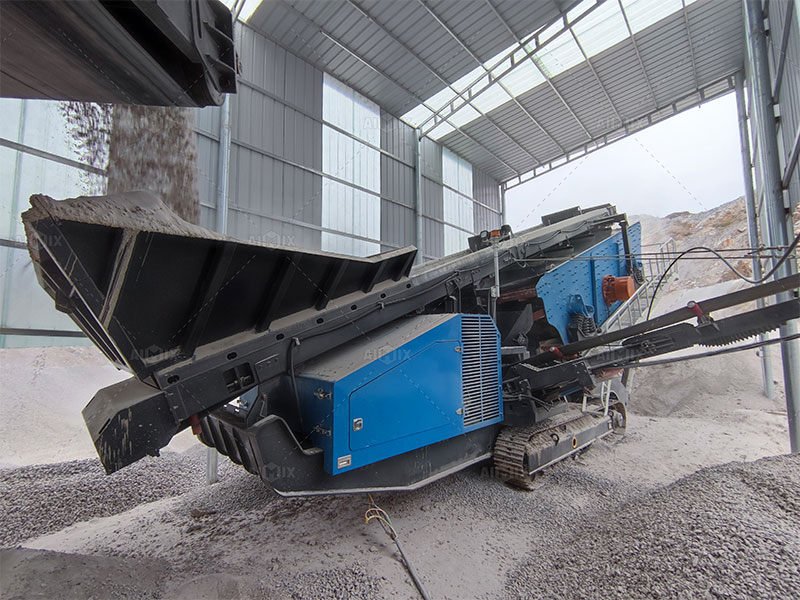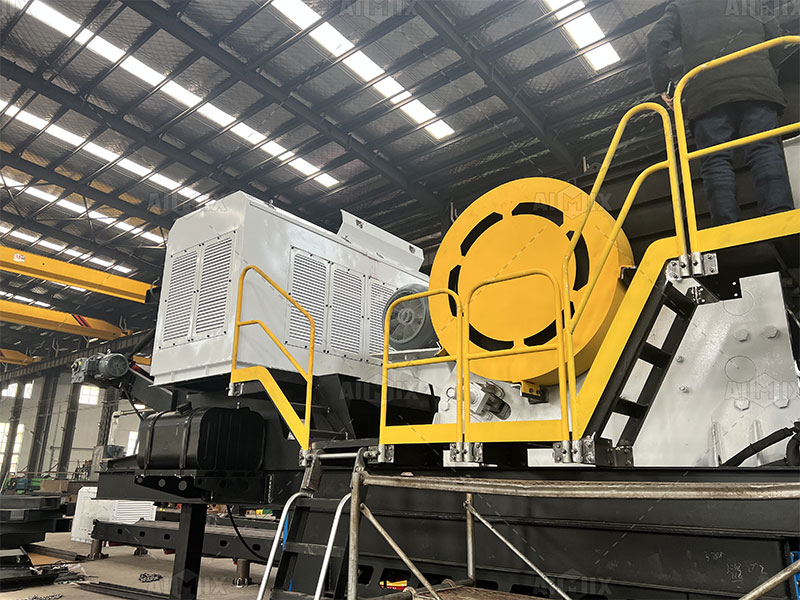Mobile crushing plants are essential equipment in various industries, including mining, construction, and recycling. They provide the capability to process large volumes of raw materials on-site, saving time and transportation costs. However, selecting the right mobile crushing plant for your specific needs requires careful consideration of several factors.
1. Determine Your Crushing Needs
Before you begin your search for a mobile crusher plant, it’s crucial to have a clear understanding of your crushing needs. Ask yourself questions like:
What types of materials will you be crushing (e.g., rocks, concrete, asphalt, or other materials)?
What is the required production capacity in tons per hour?
Are there any specific size and quality requirements for the final product?
Do you need a primary, secondary, or tertiary crushing solution?
Having a well-defined set of requirements will guide you in choosing the right mobile crushing plant that can efficiently meet your production goals.

2. Consider Mobility and Portability
One of the primary advantages of a mobile crushing plant is its mobility. Mobile-type stone crushers can be moved from site to site, which is especially beneficial for industries where crushing needs change frequently. When considering mobility, keep these points in mind:
How frequently will you need to relocate the plant?
Are there any transportation restrictions (e.g., road width or weight limits) to consider?
Does the plant come with its own transport system (tracks or wheels)?
Can it be easily set up and dismantled at different locations?
The level of mobility you require will influence your choice of mobile crushing plant.
3. Evaluate Crushing Equipment Options
Mobile crushing plants consist of various components, with crushers being the core equipment. Several types of crushers are available, each suited to different applications:
Jaw Crushers: Ideal for primary crushing of hard materials, such as granite and basalt.
Impact Crushers: Suitable for secondary or tertiary crushing and for processing softer materials like limestone.
Cone Crushers: Best for secondary and tertiary crushing, particularly for materials with high hardness.
Screening Units: Essential for separating different sizes of crushed materials.
Consider your material type, size, and desired end product when selecting the appropriate crushers and screens for your mobile crushing plant.
4. Think About Power Source
Mobile crushing plants require a reliable source of power to operate efficiently. There are two main options:
Diesel Power: Mobile plants equipped with diesel engines are versatile and can be used in remote locations or areas with limited access to electricity. However, they produce emissions and require regular maintenance.

Electric Power: Electric-powered mobile crushing plants are more environmentally friendly and often more cost-effective in the long run, especially if you have access to a stable power grid. They are also quieter and require less maintenance.
Your choice of power source should align with your operational needs, environmental considerations, and available infrastructure.
5. Consider Maintenance and Serviceability
Mobile crushing plants, like any industrial equipment, require regular maintenance to ensure they operate efficiently and have a long lifespan. When purchasing a plant, inquire about:
The ease of access to critical components for maintenance and repair.
The availability of spare parts and the manufacturer’s support.
The maintenance schedule is recommended by the manufacturer.
Choosing a plant that is easy to maintain and has good manufacturer support can reduce downtime and operational costs over time.
6. Pay Attention to Safety Features
Safety is paramount in any industrial operation. Ensure that the mobile-type stone crusher plants you choose have adequate safety features in place. This includes:
Safety guards and interlocks to prevent access to moving parts during operation.
Emergency stop buttons and procedures.
Adequate training for operators.
Compliance with relevant safety standards and regulations.
A safe working environment is not only legally required but also crucial for the well-being of your workforce.
7. Consider Environmental Impact
Environmental regulations are becoming increasingly stringent, and many industries are focusing on reducing their environmental footprint. When choosing a mobile crushing plant, consider its environmental impact, including:
Emissions (if diesel-powered).
Noise levels.
Dust suppression systems.
Recycling capabilities.
Selecting an environmentally friendly plant not only helps meet regulatory requirements but also demonstrates your commitment to sustainability.
8. Budget and Total Cost of Ownership
Finally, consider your budget and the total cost of ownership. While it may be tempting to opt for the cheapest mobile crushing plant initially, it’s essential to think long-term. Consider factors like:
Initial purchase price.
Operating costs (fuel, maintenance, electricity).
Resale value.
Financing options.
A more expensive plant with lower operating costs and better reliability may be a more cost-effective choice in the long run.
In conclusion, purchasing a mobile-type limestone crusher is a significant investment that requires careful consideration. By thoroughly assessing your crushing needs, mobility requirements, equipment options, power source, maintenance, safety, environmental impact, and budget, you can make an informed decision that will benefit your business in the long term. Remember that each application is unique, so take the time to consult with experts and manufacturers to find the ideal mobile crushing plant for your specific requirements.

